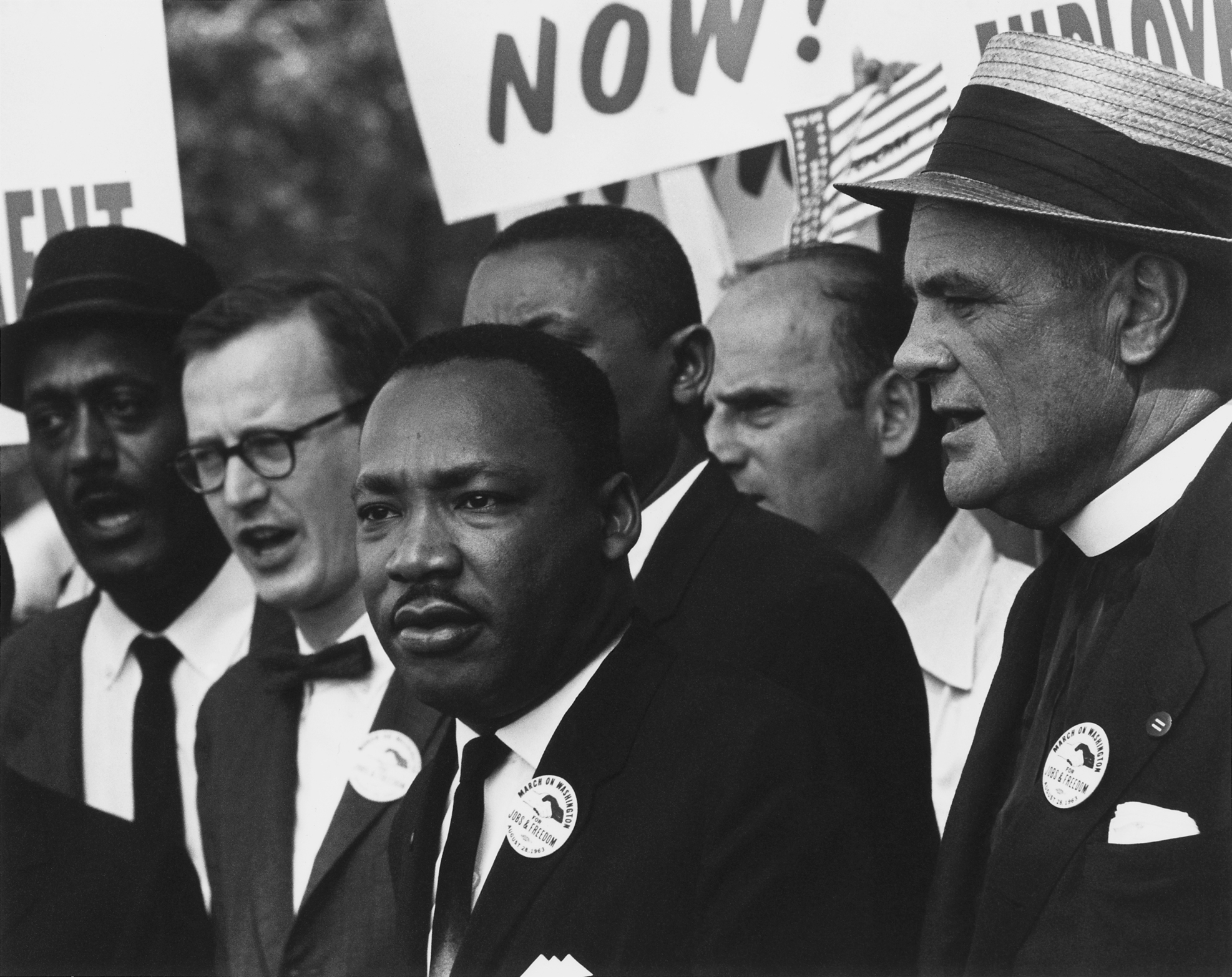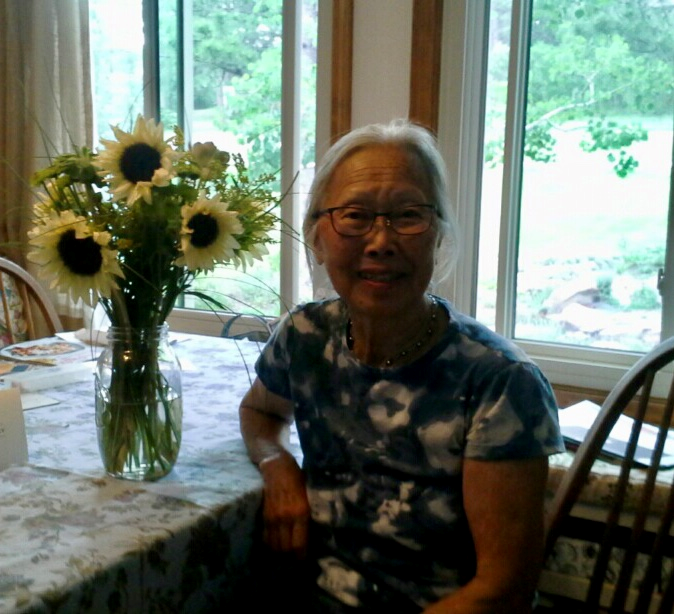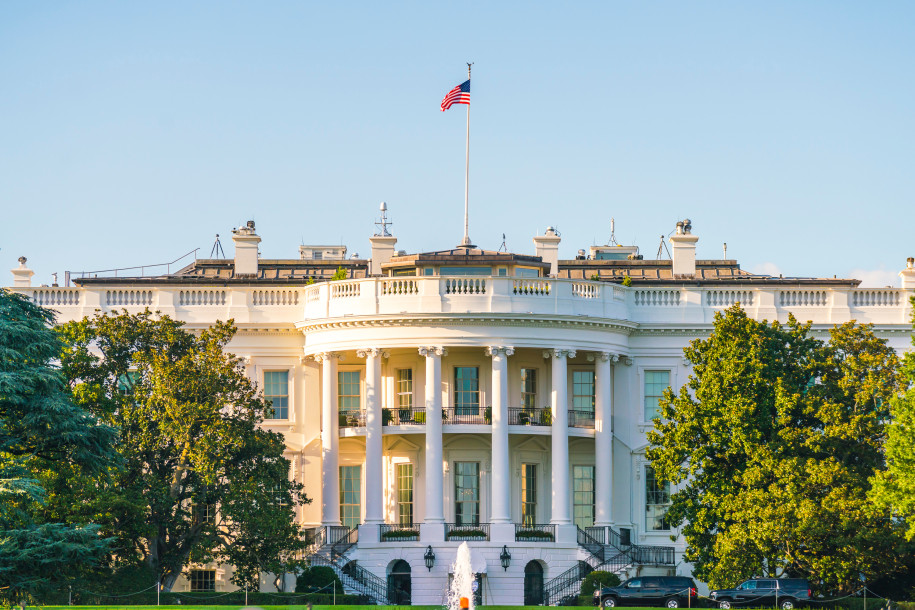Abortion rights, women of color, and LGBTQI+ people are under attack. Pledge to join us in fighting for gender justice.
This MLK Day, Do More Than Share an Uplifting Quote

 This post was written in 2017 and was updated on January 12, 2018.
This post was written in 2017 and was updated on January 12, 2018.
Today, you’ll probably see your feeds filled with inspirational quotes and images of Dr. Martin Luther King Jr. – but little commitment to action. Hey, we’ve probably been guilty of just hitting share and moving on with our day off ourselves – but MLK’s legacy of organizing and agitating for justice was more profound and more complex than can be distilled in a few of his most famous quotes. In the age of Trump, it’s more important than ever that we reflect on and channel the spirit of the MLK who called for economic justice, spoke truth to power, and used civil disobedience and direct action as a tool for change.
You’ve probably seen this quote shared quite a bit since Trump was elected as president: “The arc of the moral universe is long, but it bends towards justice.” Senator Cory Booker invoked this quote while testifying against Senator Jeff Sessions’ nomination to attorney general, saying, “The arc of the moral universe does not just naturally curve toward justice, we must bend it.” But we can’t bend that arc with words alone. Today, let’s recommit ourselves to justice, action, and resistance as we go into the unknown.
In that spirit, here are three things you can do:
Organize Locally
“But it is not enough for me to stand before you tonight and condemn riots. It would be morally irresponsible for me to do that without, at the same time, condemning the contingent, intolerable conditions that exist in our society. These conditions are the things that cause individuals to feel that they have no other alternative than to engage in violent rebellions to get attention. And I must say tonight that a riot is the language of the unheard. And what is it America has failed to hear?…It has failed to hear that the promises of freedom and justice have not been met. And it has failed to hear that large segments of white society are more concerned about tranquility and the status quo than about justice and humanity.”
— The Other America, March 14, 1968
There are many things you can do in your own community, like:
- Join a local Standing up for Racial Justice (SURJ) chapter.
- Get involved with your local Black Lives Matter chapter.
- Become a clinic escort at an abortion clinic.
- Attend local rallies and protests on issues you care about.
- If you belong to a faith community, find out what congregation-based organizing exists in your community — or help start something yourself!
- Help support organizing by donating to locally focused racial justice organizations and individuals leading local efforts.
Hold Elected Leaders Accountable
“I knew that I could never again raise my voice against the violence of the oppressed in the ghettos without having first spoken clearly to the greatest purveyor of violence in the world today – my own government.”
— Why I am Opposed to the War in Vietnam, April 30, 1967
You probably know how to call and send letters to your Congress member (follow NWLC’s Take Action page and social media accounts for ways to get involved!), but did you know your federal lawmakers have district offices? You can even schedule an appointment to talk with them about issues you are concerned about (perhaps even tell them what you think about their plan to repeal the ACA). And of course, don’t forget about your state legislators! They’re just as important, especially as conservative lawmakers push back against federal protections. You can also attend local town halls, city council meetings, school board meetings and more (checkout our offline activism toolkit for some tips to get you started). It’s important to make your voice heard at all levels and to hold our elected officials accountable every step of the way. Want to take it a step further? Run for office!
Disrupt Racism and Injustice in Your Own Communities
“First, I must confess that over the past few years I have been gravely disappointed with the white moderate. I have almost reached the regrettable conclusion that the Negro’s great stumbling block in his stride toward freedom is not the White Citizen’s Counciler or the Ku Klux Klanner, but the white moderate, who is more devoted to “order” than to justice; who prefers a negative peace which is the absence of tension to a positive peace which is the presence of justice; who constantly says: “I agree with you in the goal you seek, but I cannot agree with your methods of direct action”; who paternalistically believes he can set the timetable for another man’s freedom; who lives by a mythical concept of time and who constantly advises the Negro to wait for a “more convenient season.” Shallow understanding from people of good will is more frustrating than absolute misunderstanding from people of ill will. Lukewarm acceptance is much more bewildering than outright rejection.”
— Letter from a Birmingham Jail, April 16, 1963
Most importantly, don’t forget about the work that needs to be done within your own circles of family and friends. That racist uncle you avoid at Thanksgiving? Engage him in a meaningful conversation about prejudice and institutionalized racism. Hold your friends accountable when they make sexist and racist jokes. This is especially important for those of us who are white people, as we know people of color will be hardest hit by the policies of the incoming administration. These conversations are hard and often painful, but they are essential to dismantling prejudice. And if you’re not talking to your friends about it, who will?
Inspiring quotes are well and good, but they’re meaningless if that inspiration doesn’t lead to action. The challenge put to each of us today — and every day — is, what are we doing to bend the arc?





